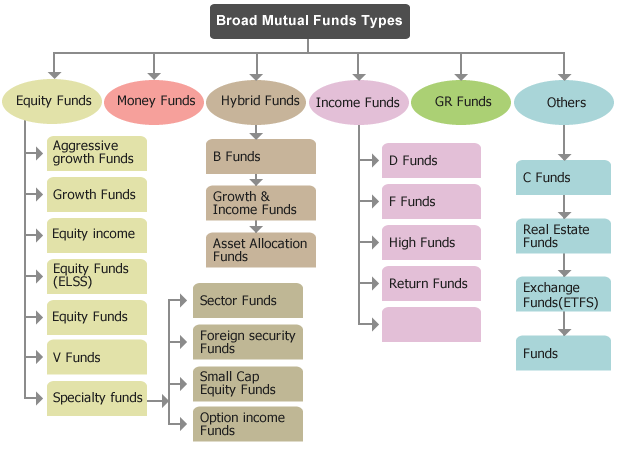What is a Mutual Fund
Post on: 16 Март, 2015 No Comment

What is a mutual fund? Do you really know? People buy them without really understanding what they are. The problem with doing this is that it can lead to some painful disappointments.
What is a mutual fund?
A mutual fund is simply an investment pool. You invest $10,000. I invest $1,000. Your rich uncle invests $100,000. The money goes into one big pot. The manager of the mutual fund decides what stock or bond to buy and sell. The manager must adhere to the criteria set forth by the mutual fund prospectus of course. But as long as she stays within those boundaries, she can do just about whatever she likes.
Why do people buy funds?
Investors buy funds because they want to invest but aren’t really sure how to do it. They buy a fund and allow the manager to make all the investment decisions. They hope that over a certain amount of time the value of the shares will rise and/or they will collect dividends and/or interest from the securities held within the fund. The fund manager tries to buy those securities that most closely match the expectations and desires of the investors.
What makes the shares of the fund rise or fall in value?
The value of the fund shares rise and fall depending on what happens to the value of the securities held within the fund. If the securities rise in value, the value of the mutual fund shares will rise as well. The converse of that is also true.
Does it matter which fund I buy?
Yes. If you are a buy and hold investor (something I discourage) you should probably buy the most inexpensive fund you can find and that usually works out to be an ETF. That’s because, over time, very few actively managed funds outperform the index but the ETF mirrors the index. In other words, over time, an ETF will usually perform better.
If you buy funds based on performance and rebalance your accounts with some regularity, it absolutely makes sense to pay careful attention to which fund you buy. But you may not have to worry about fund expenses. That’s because performance results are always net of expenses.
So if you buy funds based on performance (which is what I recommend) you should make your decision solely based on performance and nothing else.
Does it matter when I buy the funds?
Yes it does. If you are a buy and hold investor, the “when to buy” answer is always “when you have the money” without any other consideration. If you are more proactive, your investment strategy must dictate when you invest (and more importantly when you refrain from investing).
Why do fund companies sell funds?
As I hinted above, mutual fund companies are in business to make money for them – not you. They charge fees and sometimes commissions. Some of these costs are disclosed in the prospectus but some are not. I strongly recommend that you read the mutual fund prospectus – especially if you hold your funds for a long time. It’s simply astounding what fund managers can get away with and how much they can charge you.
What are the alternatives?
As I suggested above, one great alternative to mutual funds is an ETF. Rather than employ fancy, expensive fund managers, an ETF picks an index it wants to mimic and just buys the stocks that make up that index. Then they hold on to those stocks. As a result there is little management and little cost. That translates into more money in your pocket. Unless you use an active investment strategy, I suggest you consider ETFs.
How do you decide which fund to buy?
This is a question I get all the time but it puts the horse before the cart. A much better question is which investment strategy is right for you. First decide about the approach you are going to use. Become comfortable with the pros and cons of your approach and then stick to it. The strategy you use will determine which fund to buy, when to buy it and when to sell it.
How much money to you need to start?
That is the beauty of mutual funds and ETFs. You can get started with very little money. ETFs are traded like stocks. You can buy with any amount you like. Mutual funds are a bit different. Many require an initial investment of $500 but some don’t. In any case, after you make the initial investment, you can add any amount you like. No minimum. If you have very limited capital and even less knowledge, consider using a service like Betterment. They are a great way to start investing and learning at the same time with little cost.














